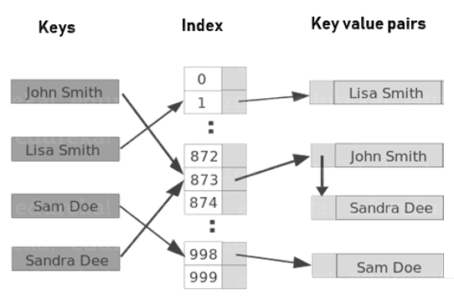Unalterable Strings: A Secret Component in Ensuring Data Consistency and Dependability
In the world of information monitoring, the importance of unalterable strings can not be overstated. These unvarying series of characters play a pivotal role in supporting the integrity and accuracy of information within systems. By maintaining a state of immutability, information consistency is made sure, cultivating a structure of dependability upon which important processes depend. The concept of unalterable strings transcends mere formality; it is a cornerstone in the facility web of information governance. As we explore the benefits, execution methods, and useful applications of unalterable strings, a more clear picture arises of their crucial nature in guarding the digital landscape.
The Principle of Immutable Strings
Unalterable strings, a fundamental principle in shows, refer to strings that can not be customized once they are created. Essentially, when a string worth is assigned, any kind of procedure that appears to customize the string really develops a brand-new string. This immutability makes sure data uniformity and dependability in applications, as it protects against unexpected modifications to the original data.
Advantages in Data Uniformity

Information consistency is critical in different aspects of software program growth, including database management, multi-threaded settings, and distributed systems (Why are strings immutable in Java?). Immutable strings add significantly to achieving this consistency by avoiding data corruption as a result of simultaneous accessibility. In scenarios where multiple procedures or threads interact with the same data all at once, unalterable strings function as a safeguard against race problems and synchronization issues
Moreover, the immutability of strings streamlines debugging and testing procedures. With unalterable strings, developers can rely on that when a string is set, it will remain the same, making it less complicated to map the resource of errors and making sure that test cases create consistent results. This integrity in data taking care of inevitably results in much more robust and steady applications.

Applying Unalterable Strings
Making certain the immutability of strings calls for a thoughtful technique to their execution in software application advancement. When a string things is produced, one key technique is to create string courses in a method that prevents adjustments. By making strings unalterable, developers can enhance data uniformity and integrity in their applications.
To implement immutable strings efficiently, designers must favor developing brand-new string items rather than customizing existing ones. This technique guarantees that once a string is assigned a value, it can not be changed. Furthermore, any procedure that appears to modify the string must produce a brand-new string with the preferred adjustments rather than altering the initial.
Moreover, using immutable strings can streamline concurrency monitoring in multi-threaded environments. Considering that immutable strings can not be transformed after development, they can be safely shared amongst several strings without the danger of data corruption.
Role in Reliability Guarantee
In software application development, the utilization of unalterable strings plays a crucial function in making certain the reliability of data operations. Unalterable strings, when created, can not be customized, ensuring that the information they represent stays constant throughout the application's execution. This immutability residential property supplies a level of guarantee that the data being refined will certainly not be inadvertently transformed, causing unforeseen end results or errors in the system.
By including unalterable strings into software application layout, developers can boost the integrity of their applications by reducing the threats related to mutable information - Why are strings immutable in Java?. Immutable strings aid in protecting against data corruption or unintended alterations, which can be specifically critical when handling delicate info or when data integrity is extremely important
Furthermore, the use of immutable strings streamlines simultaneous processing, as multiple threads can securely gain access to and share string information without the threat of one thread modifying the content while another is reading it. This aspect adds substantially to the general dependability of the software system, ensuring foreseeable and constant behavior in data dealing with operations.
Applications and System Combination
The seamless assimilation of unalterable strings right into numerous applications and systems is crucial for additional reading making sure durable information consistency and integrity across varied technological atmospheres - Why are strings immutable in Java?. Unalterable strings play a critical role in improving the stability of data exchanges and communications within complicated software program environments. By integrating immutable strings into applications, programmers can minimize the threats connected with YOURURL.com information tampering, unauthorized modifications, and unintended alterations, therefore fortifying the total security position of the system
Immutable strings can enhance interoperability in between inconsonant systems by giving a standard style for information representation, enabling much more reliable data handling and exchange procedures across interconnected platforms. By taking on unalterable strings in applications and system integration processes, companies can strengthen their information facilities and promote the integrity and consistency of their info possessions.
Final Thought
To conclude, unalterable strings play an important duty in keeping data uniformity and dependability in numerous applications and system combinations. By making certain that strings can not be altered when developed, the stability of data is preserved, lowering the risk of errors and disparities. Carrying out unalterable strings can significantly improve the integrity of systems, inevitably causing more dependable and accurate data handling.
